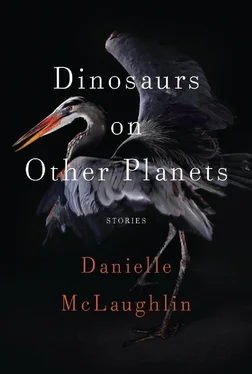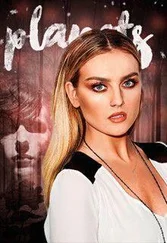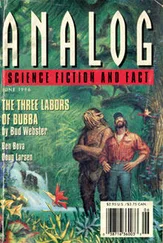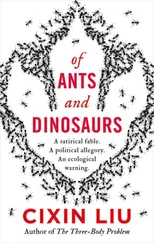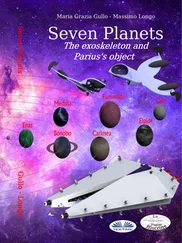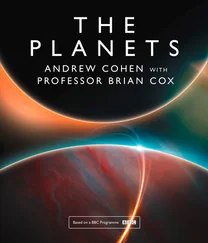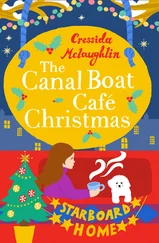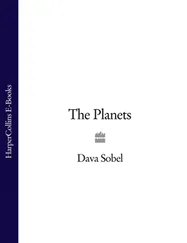They should have made her happy, but they didn’t. They were indistinguishable from the ducks that had died the day before. If she hadn’t cut through the park yesterday morning, if she hadn’t taken lunch here today, she might even have thought, next time she visited, that they were the same ducks. There was trickery of a sort at work, a sleight of hand that suggested that the first ducks had never existed, and only she alone, in silent witness, knew better. She put the remainder of her sandwich in the trash bin and, leaving the park, made her way back to her office. Later, at her computer, she typed “Stephen’s Green ducks dead” into a search engine, but her inquiry yielded nothing of relevance.
—
SHE WAS DRIVING HOME shortly after six P.M., with the radio set to a music station. She liked this stretch of the commute, the city traffic behind her, the winding country roads that led into Portlaoise then out of it again. There was a particular house that drew her eye each evening, a house of the same period and style as their own early nineteenth-century Georgian, but better tended. In winter, candles in glass jars hung from holly trees, and now, in late spring, daffodils bloomed on either side of the long avenue. This evening as she drove past, she felt not inspired but admonished. If it was still light by the time they finished dinner, she would attempt a cleanup of the beehives in the southwest corner of their property. She would ask Finn to help her; it might take his mind off all things dead. They could paint the hives different colors, use them as planting boxes; she had no desire to keep bees. Items of beekeeping equipment — a suit, a veiled hat, a smoker — had been among the things left behind in the shed, and she’d taken this as evidence that the people who had lived here before were beekeepers, but perhaps it was better evidence that they were not; that they were, at best, failed beekeepers. And for no reason that she could point to, she knew the beekeeping paraphernalia hadn’t belonged to the same person who owned the pony trap; these things, she was sure, were the leavings of two different people, the discarded parings of two separate lives.
It had rained earlier in the afternoon, a light drizzle, and the three steps that led to the front door were slippery. Above the door, just below the box that housed the burglar alarm, was a domed copper bell. The rope pull was missing, but the metal tongue remained, and she was still startled occasionally, in strong winds, by a shrill, high note. Letting herself into the hall, she thought she detected the smell of something cooking, something other than potatoes and peas. Bill came out of the kitchen to greet her. “Guess what?” he said. “I’ve got an interview.”
“That’s great,” she said, trying not to look too surprised, because she’d begun to suspect that he no longer applied for jobs. “What’s it for?”
“A position at the museum in Athy.”
“The museum?” she said, puzzled. “You mean in the accounts department?”
“It’s more hands-on,” he said. “Cataloging exhibits, working on the archives, that sort of thing.”
Careful, she warned herself, careful how you play this. Mentally, she had already begun to calculate the cost of his return bus fare, adding to it the cost of new work clothes, the cost of paying someone to mind their son. To buy a little time, she busied herself with hanging her coat on a peg and then, turning to him again, said: “Where’s Finn?”
“He’s in the kitchen,” Bill said, “worrying about ducks.” He began to walk back down the hall, and she followed him. “So how much does the job pay?” she asked, doing her best to sound casual.
“They said we can discuss salary at the interview.”
“But they do actually pay?”
“Of course.” He halted in the doorway of the kitchen and frowned. “You could try to sound more pleased,” he said. “You wanted me to get a job. Well, that’s what I’m doing.”
She felt like telling him that this had nothing to do with want — that what either of them might have wanted had stopped being relevant a long time ago. “Sorry,” she said, “I just…you know…when is the interview?”
“Tomorrow at four. Which means I’ll need to leave here just after three.”
“But who will look after Finn?”
“I thought you could take the afternoon off.”
“I have appointments,” she said. “If I’d had more notice…” She saw then that Finn was sitting at the kitchen table, and that the thing he had on a plate in front of him, which at first glance she’d taken for a soft toy, was in fact a dead bird. Easy does it, she told herself, Deep breaths. She went over and stood beside him. He looked up from poking the bird with a fork, and smiled. It was small and dark, with black and brown feathers, its pinkish claws curled. “Did you catch it in your net?” she said. She pictured it dropping from the sky, the taut bounce as it rose only to fall back again.
“No,” he said. “I found it by the river.”
She watched as he plucked a feather from the bird’s belly. “What are you doing?” she said. “It might be diseased.”
“It is diseased,” he said. “It’s got plague.” He was pulling out feathers in swift sharp yanks, leaving a clearing of pink-hued skin bubbled with goosebumps. He picked up a knife and prodded the cleared patch as if about to make an incision. “Okay,” she said. “That’s enough, get it off the table right now.” Behind her, Bill was taking something from the oven. It was the first time he had cooked properly in weeks. She watched as he peeled the foil cover from a roasting tin, and when the rush of steam dispersed, she saw that it was a chicken.
After dinner, Bill disappeared into the room off the kitchen that they used as a TV room. She had abandoned the idea of interesting Finn in the beehives: He’d eaten his potatoes and peas, then taken the feathered cadaver outside to the garden, where he sat examining it, so engrossed that she hadn’t the heart to take it from him. She did the dishes before joining Bill in the TV room. It was a small space that might once have been a maid’s room and was easier to heat than the larger rooms in the front. Bill was sitting in an armchair, toasting his socked feet on the bars of an electric fire.
The husband of one of her colleagues had taken a job in Dubai last year. It was difficult, of course, her colleague had said, but every second month she left the kids with her mother and flew out for a week. In three years’ time they would be back on their feet; it would be worth it. Looking at Bill now, sitting there reading one of his art journals, she wished that he would go to Dubai, too; it shocked her, the force with which she wished this, as did the composure with which she found herself contemplating it. She went to a cupboard and took out the bottle of brandy left over from Christmas, poured a measure for herself, another for him. He took the glass from her, but said nothing.
“Maybe you could take Finn with you tomorrow?” she said.
He looked up from his journal. “Turn up with a kid in tow? I might as well not bother.”
And she saw now how this would unfold, how any time in the future she hinted he should get a job, it would come back to this: He’d wanted to, he’d tried, she’d thwarted it. She took a mouthful of brandy. “I think you should go,” she said.
“What about your appointments?”
“I can’t get out of the first one, but I’ll ask someone to cover the later ones. Put on one of Finn’s DVDs for him. I’ll be home by three-thirty P.M.”
“You mean leave him on his own?”
She was tempted to say it wouldn’t be much different from any other day. As best she could tell, Bill mostly seemed to leave the boy to his own devices.
Читать дальше
